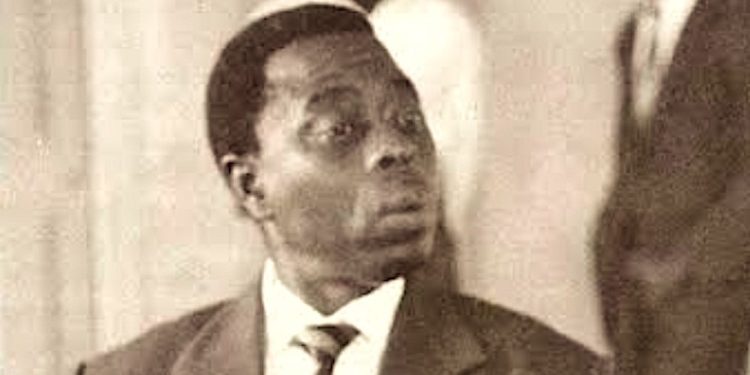Back in the swinging 70s, there was a man named Emmanuel Odumosu who decided he was more than just your everyday Lagosian but the second coming of Jesus Christ, and he made sure everyone knew it.
And so, Jesu Oyingbo was born.
Emmanuel kicked off his spiritual career with a bang in June 1959, declaring himself “the missing piece of the Trinity” and setting up shop in Oyingbo. Word spread faster than market gossip, and soon his quirky band of followers was on hand, drawn by his larger-than-life personality and promise of everlasting joy (and maybe a little earthly fun, too).
With a background in carpentry—an ironic nod to the original Jesus and his earthly trade—Jesu Oyingbo claimed a divine revelation had blessed him with the secrets of the Bible, the ability to work miracles, and even the knack for whipping up a business empire. Forget 5 loaves and two fishes; this self-proclaimed saviour was busy baptising new recruits with nine hearty strokes of his holy cane, which he claimed was nothing short of a divine initiation ritual. Kinda reminds me of this legendary meme.
Converts would leave their old lives behind, flocking to his Universal College of Regeneration, which was less a church and more a buzzing community center where everyone got a dose of his eccentric gospel.
But here’s where things get interesting: Jesu Oyingbo wasn’t just about spiritual salvation—he was also a bona fide “Pastorpreneur.” With a portfolio that boasted a printing outfit, bakery, restaurant, barbershop, construction company, and even real estate ventures, he made it clear that his wealth came from savvy business deals, not just donations. And speaking of donations, his idea of divine entitlement extended to the women in his flock. With a revolving door of wives (some say he had anywhere from 30 to 80, with the real tally lost in the shuffle of communal living), he treated marriage as both a spiritual mandate and a personal perk. He’d even marry a woman just to send a message to a misbehaving husband—talk about unconventional justice!
Even though his daily routine involved a mix of early-morning noise (yes, Lagos never sleeps) and evening movie screenings to entertain the neighbourhood, the urban mythos of Jesu Oyingbo grew. His buildings, adorned with inscriptions like “Merciful and Mighty” and “Prince of Peace,” became local landmarks—even if they now serve as grim reminders of a once-mighty empire now overrun by weeds and urban decay.
By the time death finally caught up with him in 1988, at the ripe old age of 73, Jesu Oyingbo had left behind a tangled legacy of wealth, scandal, and a harem of wives and children who would soon wage a civil war over his fortune in a saga fit for a Nollywood blockbuster. Court battles, family feuds, and a disintegrating church followed, leaving many to wonder if, like his infamous claims, his resurrection would ever come. Instead, the only thing left to resurrect was the legend itself—a bizarre, humorous footnote in the annals of Lagos lore.
And so, amidst whispered debates over street corners and in the catchy refrains of a local Yoruba gospel song (“I don’t know Jesus of Oyingbo, I don’t know Jesus of Agege…”), the legend of Jesu Oyingbo lives on—an urban fable of divinity, debauchery, and the eternal quest for a bit of heavenly fun on Earth.



